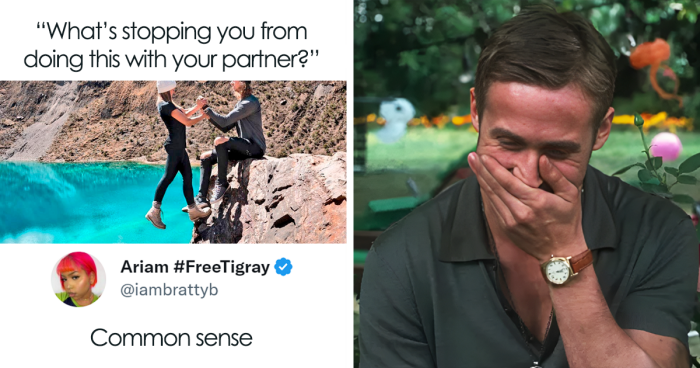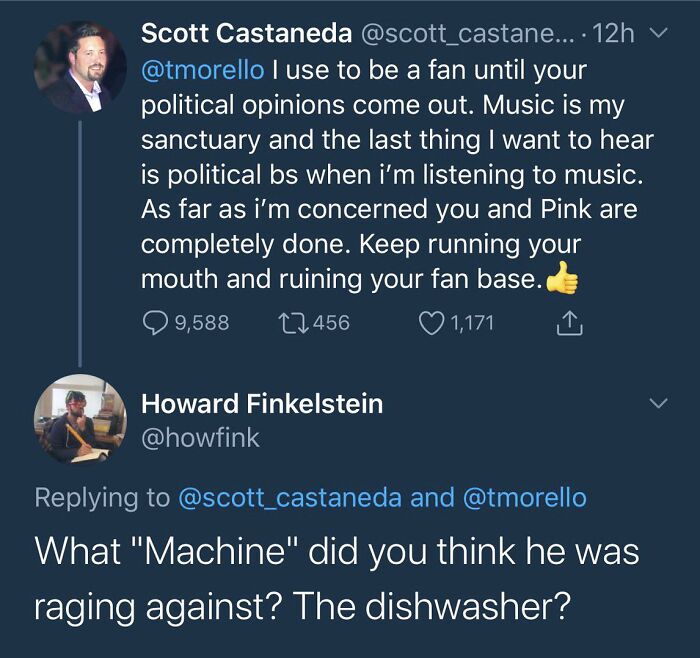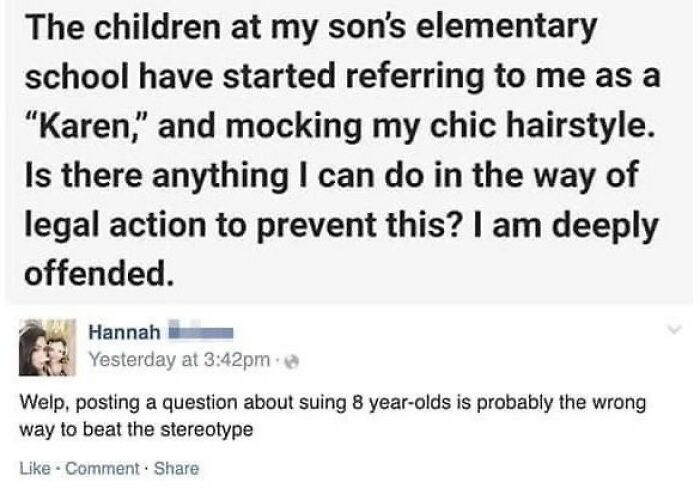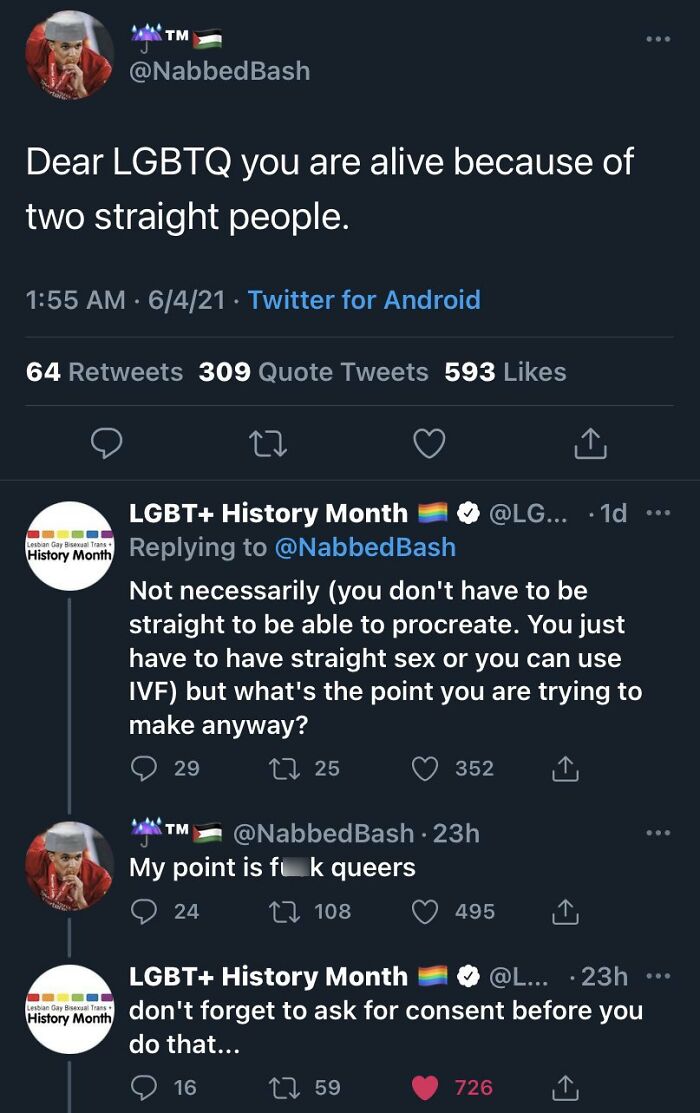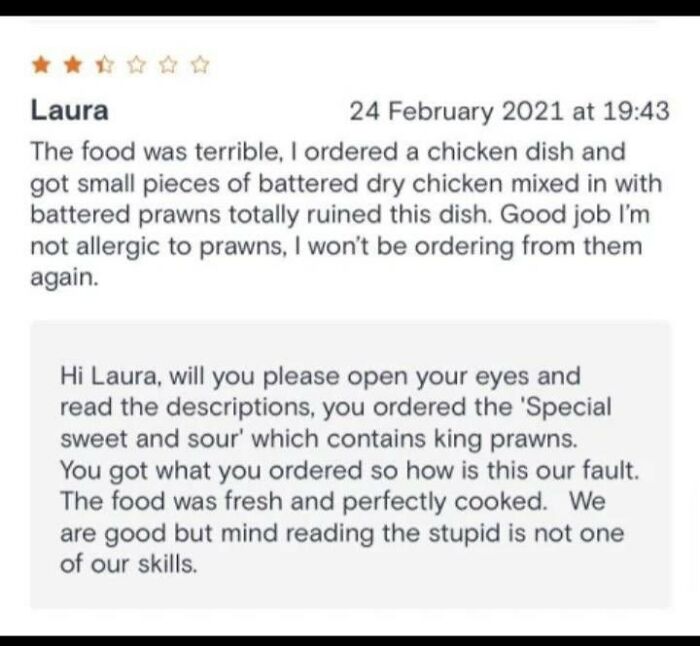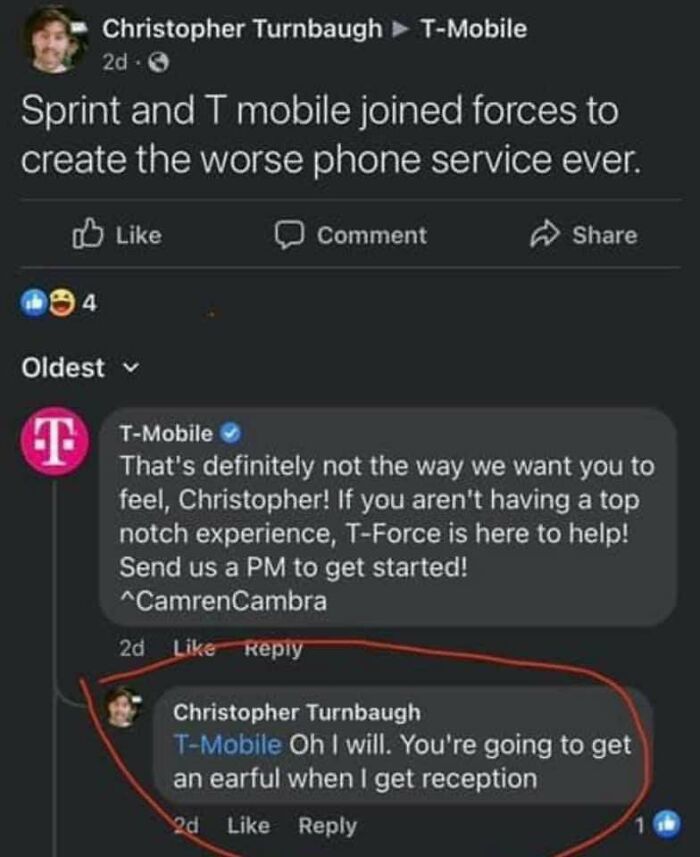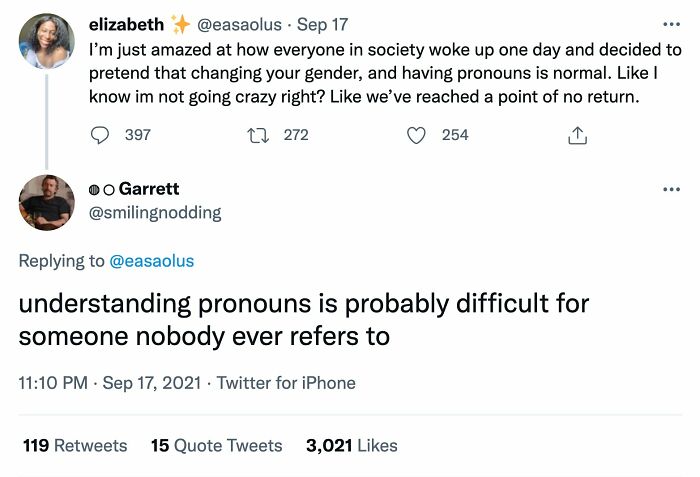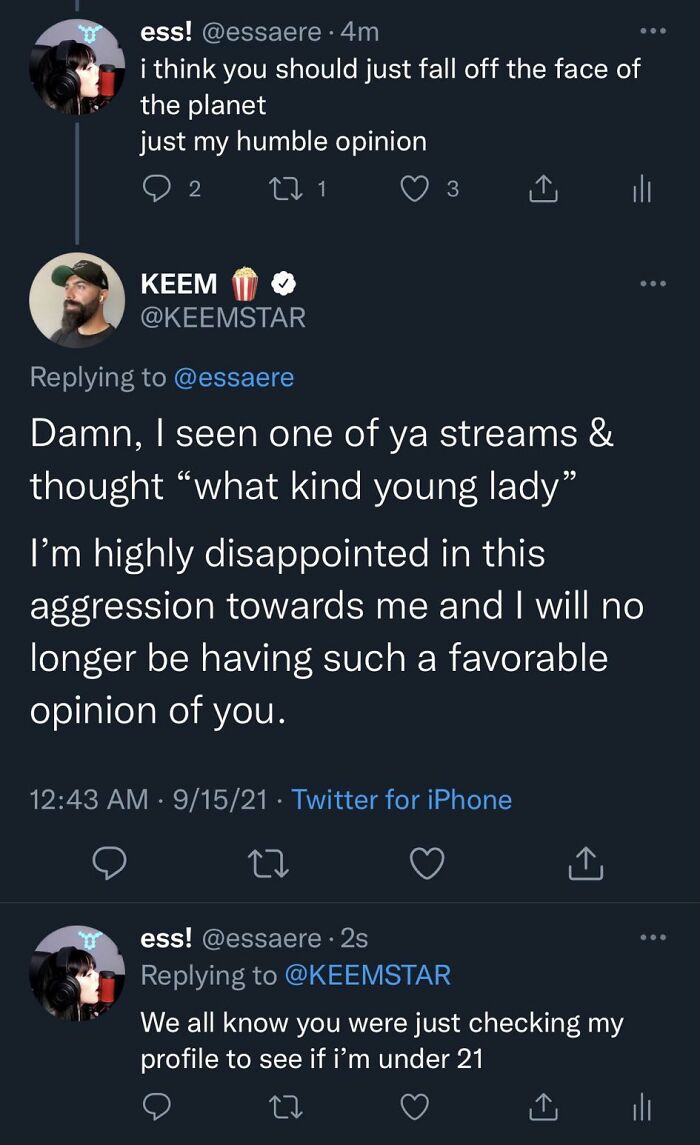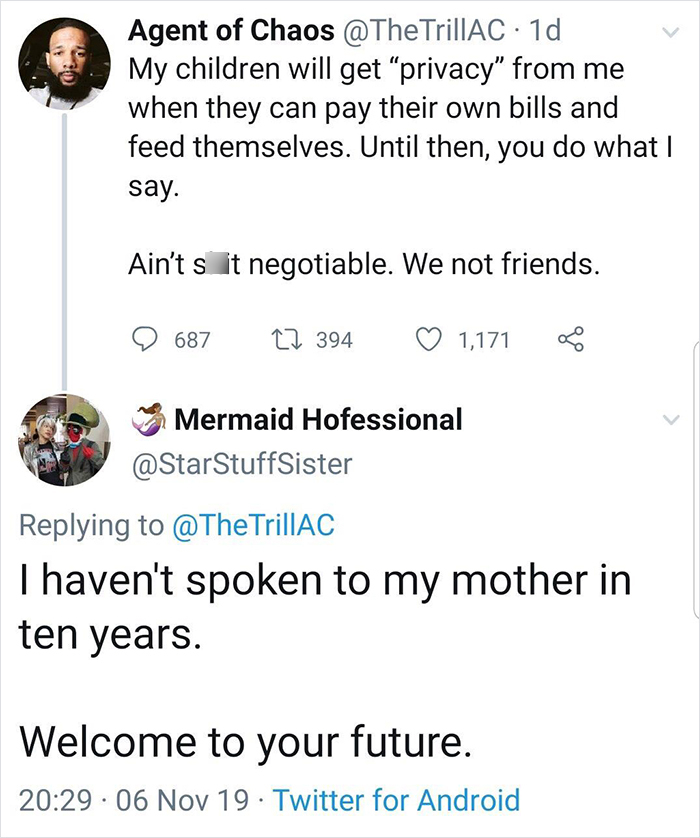Seeing a good clapback is always satisfying. It's witty, has an element of justice, and can defend against unnecessary insults. The funnier it is, though, the more effective. We don't only want justice, we want to make the comeback sting more with a joke.
There is an X (Twitter) page that collects this sort of humor. People online say all sorts of things. And there's no shortage of wannabe comedians or just people with a well-developed funny bone online as well. Clever Comebacks is the place where one can find some witty roasts. So we invite you to scroll through our selection from this X page and tell us your own stories of clapping back in style.
This post may include affiliate links.
How many of us would want to be able to come up with witty comebacks on the spot? How often do most of us wonder how to clap back in the moment? Not an hour, a day, or a week later. The secret to a great comeback, according to a theater artistic director, is focusing, really focusing, on what the other person is saying.
Abigail Paul, the artistic director at the Theatre Language Studio (TLS) in Frankfurt, told the BBC in 2016 that you can't really plan a good comeback. It's like improv on stage in that regard – you work with what the other person is giving you. Paul claims that people think faster than other people speak. That gives them time to come up with a witty answer.
Paul says good listening skills come in handy when coming up with a clever comeback. For those who want to hone their listening skills, she suggests a simple game of one-word volleyball. Two people build a story by quickly adding a word as a response to what the other person just said.
She uses the same technique when teaching improvisation theater. "The goal is that we let go of our own ego and our own ideas because a huge part of listening is that you really have to be willing to be changed by what's being said," Paul told the BBC.
People begin hearing insults thrown at them in childhood. Although at that age they might seem insignificant, a child should know how to react properly. Psychiatrist Suzanne Bender, M.D., writes for Psychology Today that ignoring the other person doesn't always work. "Rude remarks without any pushback may continue, or even escalate," she added.
Agreeing with the offender might work. But children should do so with humor. If a kid tells another child "You look like a grape in this shirt", the kid might retort with "Well, I love grapes and couldn’t be prouder to represent this fruit." Yet the problem with this is that it requires verbal agility and to think on one's feet.
However,children can practice and enhance their verbal agility. Bender suggests parents roleplay with their kids. That way, the child can take turns to be both the aggressor and the responder. Practicing these types of situations might increase the kid's confidence. Next time, they might have a clever comeback prepared, and that's incredibly empowering to a young child.
What's interesting is that "the battle of wits" is not an invention of social media. Pamela Druckerman writes for The New York Times about the movie "Ridicule", which examines the social injustices of late 18th-century France. It portrays French aristocrats as having a never-ending battle of wits.
The film is set on the eve of the French Revolution, and shows the corruption and callousness of the aristocrats. Those who were able to make their rivals look ridiculous, possessed 'esprit.' As Merriam Webster defines it, the term means 'vivacious cleverness or wit.' The movie’s tagline is this: "Wit opens every door."
Druckerman likens this order of society to her daughter's playground. You and everyone around you is in a competition not to look ridiculous. "When my daughter complained that a boy had insulted her during recess, I counseled her to forget about it," Druckerman writes. "She said that just wouldn't do: To save face, she had to humiliate him."
So if we're doomed to always be on our toes and have witty comebacks ready on the go, how do we make them land? Belina Raffy, a business improvisation consultant, told the BBC that it's best to respond to an insult in a positive way. She says that toxic banter turns the environment sour for every employee.
Instead of being mean, says Raffy, try to reveal the "ridiculousness of the situation" and don't make the antagonist the bad guy. It's best to turn them into the "victim" of the circumstances. What are some examples? "If a colleague says, 'This project is going nowhere fast,' you could say, 'At least it's going and I intend to steer it in the right direction,'" Raffy suggests.
We need less AITAs and more of these. It's actually entertainment
EVERY SINGLE ONE of the first 20 had been on BP at least a dozen times.
Load More Replies...I'm left wondering how many times Bored Pandas will see the exact same jokes repeated again and again and again and again and again and again and again and again and again before they stop up-voting while saying to themselves "Oooh! I love this joke because it reinforces my political opinions"
We need less AITAs and more of these. It's actually entertainment
EVERY SINGLE ONE of the first 20 had been on BP at least a dozen times.
Load More Replies...I'm left wondering how many times Bored Pandas will see the exact same jokes repeated again and again and again and again and again and again and again and again and again before they stop up-voting while saying to themselves "Oooh! I love this joke because it reinforces my political opinions"

 Dark Mode
Dark Mode 

 No fees, cancel anytime
No fees, cancel anytime 


